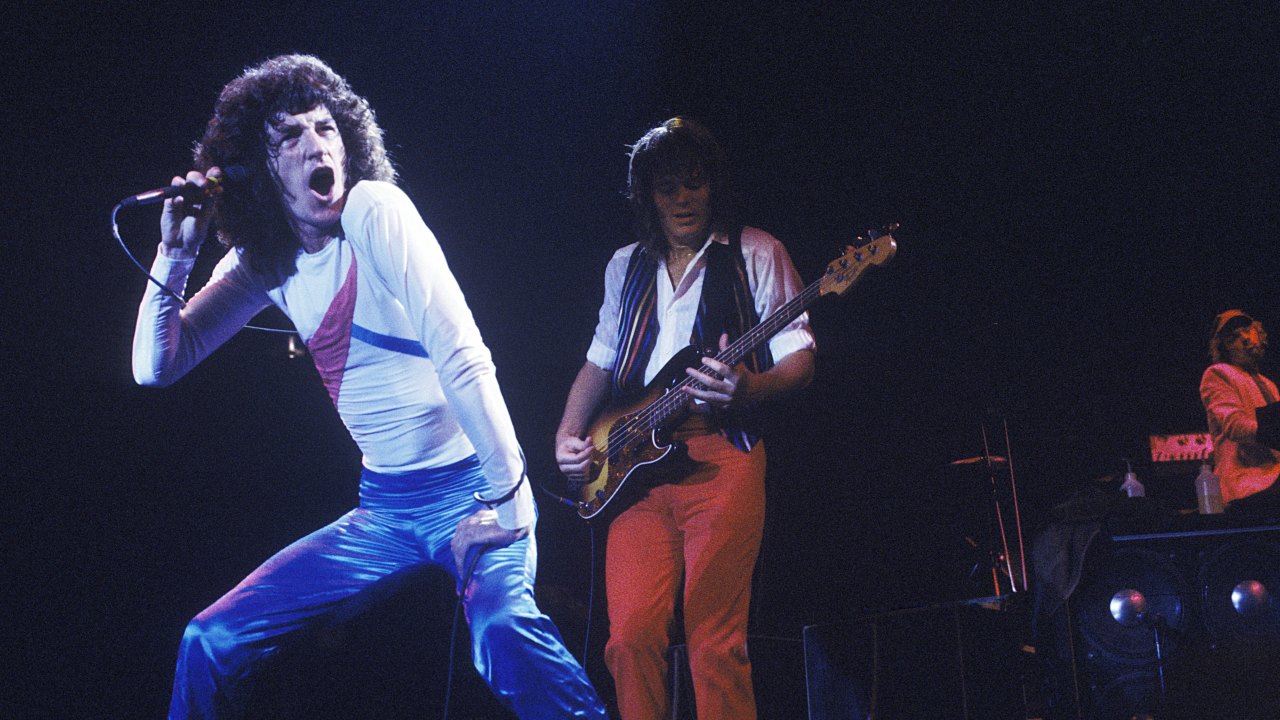As Ian Dury once noted, there ain’t half been some clever bastards. REO Speedwagon singer Kevin Cronin is one. It was Cronin’s melodic sensibility that transformed REO into one of America’s biggest bands in the 1980s. And it was his songs that gave them their two US number one hits: the quintessential power ballads Keep On Loving You and Can’t Fight This Feeling.
Born on October 6, 1951 in Evanston, Illinois, a suburb of Chicago, Cronin has experienced the best of times and the worst of times with REO Speedwagon. In 1972, he was fired from the group, and was only reinstated four years later. In 1981 the band had their greatest success with the ten million selling album Hi Infidelity. And in the late 80s, as the band’s popularity declined, it was Cronin who kept REO afloat following the departure of two key members – guitarist Gary Richrath and drummer Alan Gratzer.
A resident of southern California since 1975, Cronin continues to lead REO Speedwagon alongside keyboard player and founder member Neal Doughty, long serving bassist Bruce Hall and two more recent recruits, guitarist Dave Amato and drummer Bryan Hitt. “We’ve been able to sustain this band for 40 years,” Cronin says. “And we’re still operating at a high level.”
A genuine AOR legend, Kevin Cronin has survived everything from “mind-boggling” success to what Guns N’ Roses called “the perils of rock ‘n’ roll decadence”. He describes his career as “a wild ride”. And for Cronin, like so many other rock stars, it all began when he first saw four guys from England on TV…

You’ve always said that The Beatles had a profound effect on you as a kid.
Yes, like probably every other person of my generation. I was around 12 years old when The Beatles played on The Ed Sullivan Show. I’d been taking guitar lessons for a couple of years and I didn’t really know why. Then I saw The Beatles and it all made sense. Of course I saw how the young girls reacted to them. And from that point I needed music like I needed air. There was no other choice for me.
Did you come from a musical family?
No. My mom was a social worker and my father worked in the newspaper business. And I was an only child till I was seven, when my parents adopted three children.
How did you react to that?
It’s interesting, man. I never thought that it was an issue, but when I went through some therapy as an adult it turns out it was (laughs). That’s a whole book right there…
What was the first song you ever wrote?
It was called My Little XKE – written about a Jaguar car. I was kind of influenced by the Beach Boys, writing about cars. But the first real song was Little World Of Make Believe. It was never recorded or anything, but when I think back on it, it had some decent chord changes and it had a story. It was pretty cohesive for a 14 year old!
Was that the age when you started playing in bands?
Yeah. At 14 I was in bands with kids a few years older. Guitar came pretty easily to me because I had a natural sense of rhythm.
What was your first professional band?
That was Fuchsia. We played a lot of originals but also covered songs that at the time were underground: Buffalo Springfield, Moby Grape, the folk-rock thing. After I heard The Byrds and Mr Tambourine Man, I had to play a 12-string Rickenbacker. I loved that jangly sound, and the vocal harmony thing.
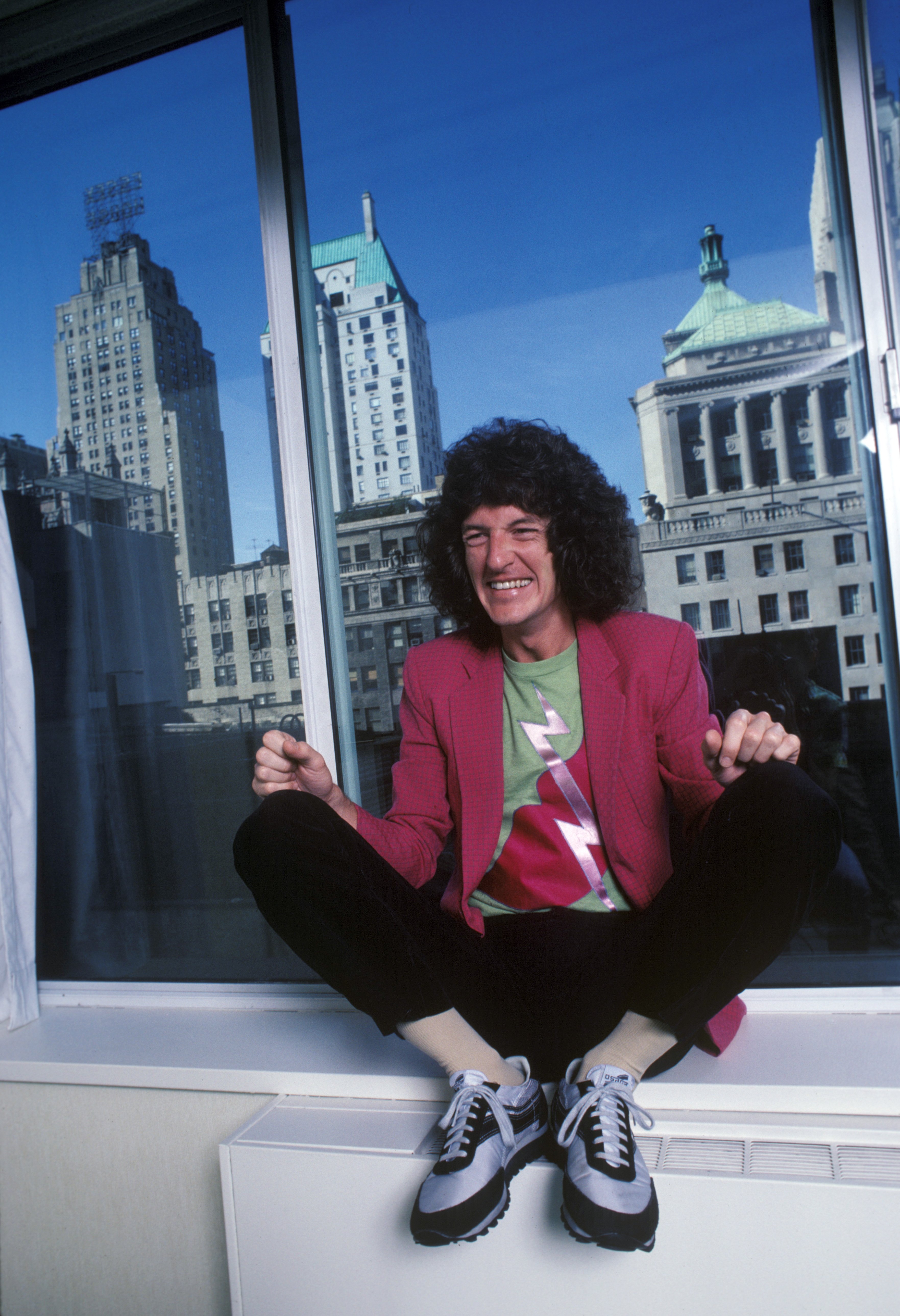
Did you have to work shitty jobs before you joined REO?
I was a guitar teacher. For one summer I sold women’s shoes, which was an education. And when I got the call from Gary Richrath about joining REO, I was driving a yellow cab in Chicago.
This was in 1972. What did the band sound like then?
Pretty heavy. They were riff-oriented, a hard rock band, like Deep Purple. The first time I saw them play live was at a little roller rink in Joliet, Illinois, and I was blown away by their energy. They already had one album, and I didn’t really see how my songs were going to fit into their approach. REO had this power and I didn’t want to mess with that. They had their thing and I had my own thing.
What convinced you to join them?
The first time I met Gary, we just jammed on acoustic guitars. It was right after Elton John’s Madman Across The Water was released, and there was a song on it, Holiday Inn, that I used to sing it in folk clubs in Chicago. I played that song and Gary freaked out – he thought he was the only person who knew that song. That’s how we connected.
REO Speedwagon was named after a flatbed truck. Did you like the name?
I thought it sucked, to tell the truth. But I went with it.
You recorded an album with the band in 1972, R.E.O./T.W.O. But while making the next record, Ridin’ The Storm Out, you were fired.
I was not used to singing with the sheer volume that REO required – the giant stacks of Marshalls behind me. So I blew my voice out. I went to a doctor and he told me I shouldn’t sing for three weeks. I was afraid to tell the band. I felt for sure they would kick me out. So I just started trying to sing as little as possible at rehearsals. I was freaking out because I feared I would lose my voice permanently. But the guys thought I was being a prima donna.
Why didn’t you just tell them straight?
Well, as a singer, when your voice is failing you, it puts you in a bad place. So when they fired me it was more of a relief than anything else. I was ready to go. As Neal [Doughty] says: “When I found out they were firing me, I quit!”
You had already recorded vocals for Ridin’ The Storm Out, but new singer, Mike Murphy re-cut your parts.
Yeah. The artwork was already done too, so they airbrushed me out and put Murphy in. Nowadays with Photoshop that would be easy, but in 1973 that was quite a technical accomplishment!
And then you went solo.
I thought I was gonna be the next Dan Fogelberg! I opened for The Eagles, and could carry an audience of 3,000 by myself. But I wasn’t meant to be a solo artist.
In your absence, REO made two albums.
They were less well-received. But there was never bad blood between us, and I kept in contact with the band. I went to a show, and it was weird to watch the band play my songs with a different guy singing them. “No! This is all wrong!” Mike Murphy is a tremendous singer, a redheaded Irishman with a feel for R’n’B, and a great guy. But he was never a good fit for REO Speedwagon.
Did you take much persuading to rejoin REO in ’76?
Oh, no. When I got the call I was ready to go. My solo career hadn’t set any world records. We realised we needed each other at right around the same moment.
Your comeback was the REO album. But it bombed, peaking at No.159 on the US Billboard chart. Did you panic?
Honestly, at that point, we didn’t know what Billboard magazine was. We had a deal with Epic Records, and we sold just enough of that album to break even. Thankfully, the honchos at Epic believed in us.
That faith was repaid when the next album, You Can Tune A Piano, But You Can’t Tuna Fish, hit the Top 30 in 1978. Who the hell came up with that title?
I’ll take the credit [laughs]. We were at a party in our hometown, Champaign, Illinois. There were all kinds of nefarious activities going on. And when I woke up the next day, somehow that phrase – You Can Tune A Piano, But You Can’t Tuna Fish – was in my mind. No one is sure who uttered the phrase first, but I was the guy that said: “That’s a pretty cool title for the album.” Everybody thought I was crazy. But Joe Walsh had called his record The Smoker You Drink, The Player You Get. So the stage was set for wacky album titles.
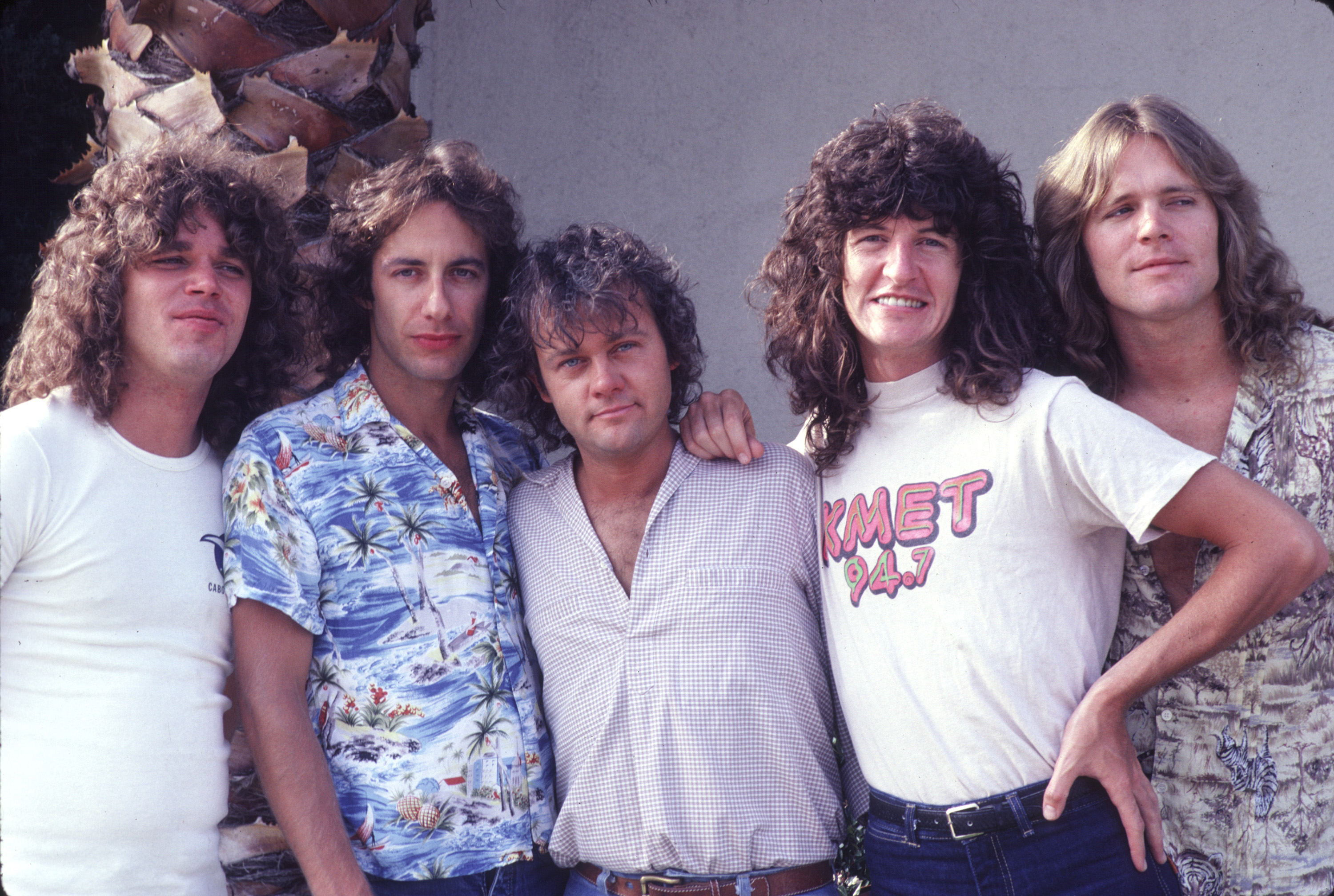
When that album made the Top 30, did you feel like you’d made it?
Well, that record didn’t do as well as we’d hoped. We had some songs we really felt were strong – Roll With The Changes and Time For Me To Fly. But there was a schism at Epic Records: they dropped the ball, and the album just kind of got left in the lurch. I was pretty hurt by that. That record was made more on my terms than Gary’s. So when it was time to make the next record, Nine Lives, Gary felt that we should rock a little harder.
Nine Lives included one of the all-time classic REO songs, Back On The Road Again, written and sung by bassist Bruce Hall, who joined the band with You Can Tune A Piano… Did you want to pull rank and sing it yourself?
Oh, no. Bruce used to sing Back On The Road Again with his own band in Champaign. So when he brought the song to REO, it was a no-brainer that he would sing it. Bruce was a Champaign guy and I wanted to get him in the band from the day I met him in 1972, when we bonded at a party, singing Beatles songs.
Nine Lives was another Top 40 album. It did okay. But then, in 1980, came the big one, Hi Infidelity…
I don’t know that anyone could have foreseen what was gonna happen with that record. I guess the stars were lined up. But we’d toured so much that all of our relationships at home were kind of shredding, and that bonded us as a band. Everything else was falling apart around us, so the band became our primary relationship. And as you’re writing songs, you’re trying to make sense of it all. There’s a lot of emotion running through you, and we were all caught up in that energy.
Was there a pivotal moment in the making of Hi Infidelity?
Yeah, when I wrote Keep On Loving You. During rehearsals I started playing it on the piano, and the guys looked at me like I was from a different planet. “What is that? What are you, Barry Manilow?” That’s what the song sounded like at first. But it was a really important song for me, very personal. I wasn’t about to let go of this song. I kept playing it over and over until, one day, Gary plugged in his Les Paul and hit these big chords. Honestly, I think he was just trying to drown me out. But I said: “Dude, that’s perfect!” The song had been a little too sweet. It needed that nasty guitar tone. And that’s when the lightbulb went on: “Ah, that’s how we do this!” Kevin writes a little folk song, Gary trashes it out, and then you got something. That’s where it all coalesced for us.
Another key song on that album was Take It On The Run, written by Gary. Did you have as much input on that song as he did with Keep On Loving You?
Sure. Gary didn’t think that much of that song, but I heard something in it. Originally it was called Don’t Let Me Down. I said: “I think The Beatles already did a song called that!” But the chorus started with ‘Take it on the run…’ I said: “There’s your title!” And of course, that song had one of the greatest opening lines in rock history: ‘Heard it from a friend who heard it from a friend who heard it from another you been messin’ around…’ I wish I’d written that! Take It On The Run and Keep On Loving You were pretty much the same story but from different perspectives.
In February 1981, as Keep On Loving You swept into the US Top 5, Hi Infidelity hit No.1. Where were you when you heard the news?
We were in the midst of a four-night stand at the International Amphitheater in Chicago – the biggest music venue in the city at the time. By that time we did know what Billboard magazine was, and to see our album at No.1 was mind-boggling. We ordered a bunch of Dom Perignon and just yelled like schoolboys. It was awesome! The days of touring in a Chevrolet station wagon were still fresh in our minds.
And then Keep On Loving You knocked Dolly Parton’s 9 To 5 off the top of the US chart. How does it feel to have written the No.1 song in America?
After all those years of working at it, it was amazing to hear your song on the radio all the time. It was everything that I’d ever hoped for as a songwriter. But it was also the first song where I really exposed my life and my relationship to a certain degree. Maybe too much…
Your lyrics in that song are at times venomous: ‘You played dead/But you never bled/Instead you lay still in the grass/All coiled up and hissin’…’
Oh yeah. The chorus is very pretty but in the verses there’s some nasty stuff in there, man! It was kind of a taboo subject, but there are people that use Keep On Loving You as their wedding song. I often think: “Hey, did you listen to the verses?” But what I learned with that song was that the more you expose of your life, the more people will relate to it. That’s what really hit the ball out of the park.
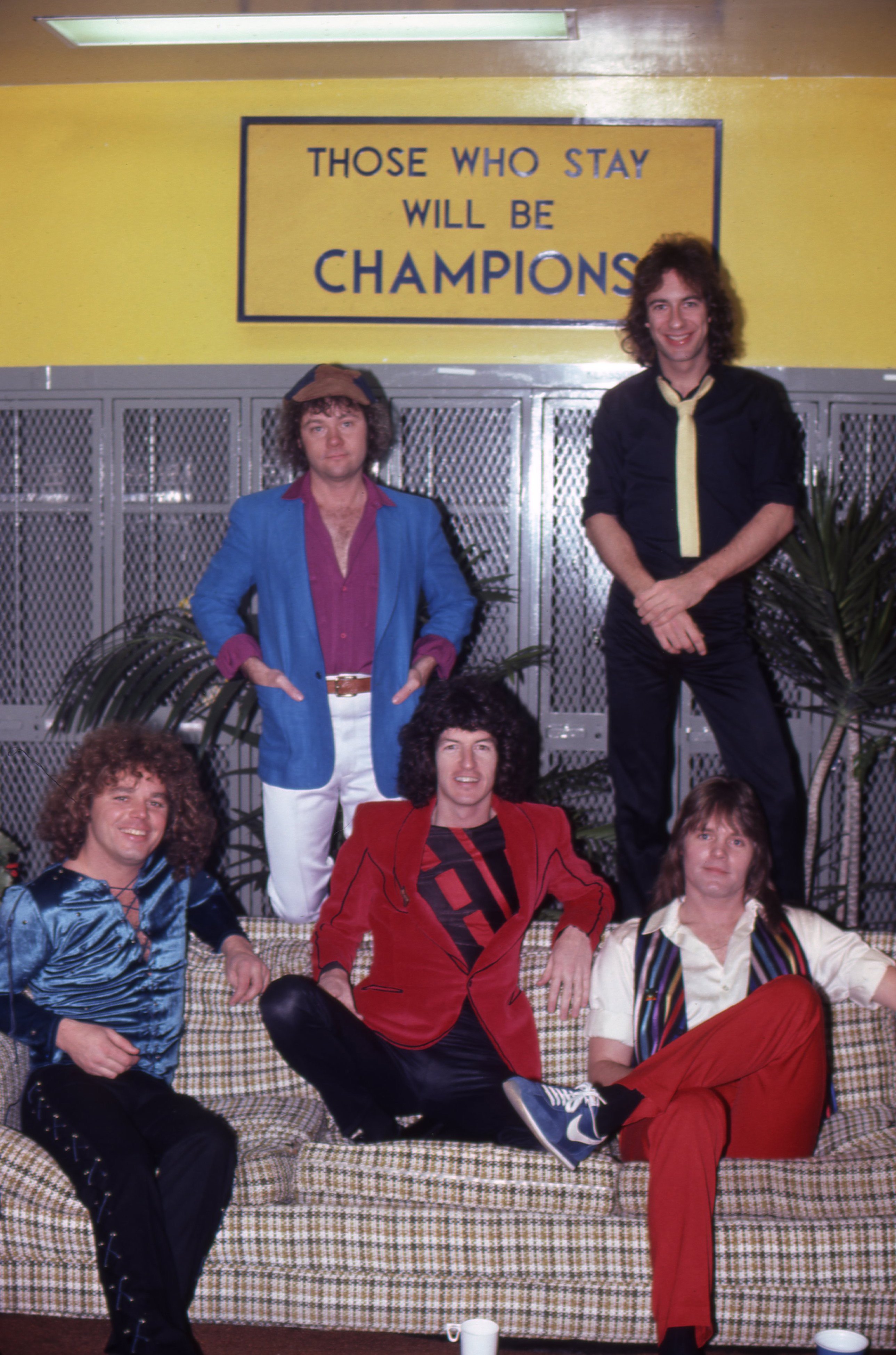
- Kevin Cronin - The 10 Records That Changed My Life
- REO Speedwagon ex Gary Richrath dead at 65
- The Top 10 Best Journey Songs
- The 10 Best REO Speedwagon Songs, by Kevin Cronin
How did the success change your life?
We had the No.1 record when MTV started out, so that just fuelled the phenomenon even further. We weren’t prepared for the level of success and how quickly our lives changed.
For the first time in your life, you were making serious money. What did you spend it on?
We all spent money on various stupid things. Personally, I was okay. I had a business manager even before the Hi Infidelity money started coming in. But as a band, we bought an oil well… in Southern Illinois [laughs]. Why we thought there would be oil there is beyond me.
The year 1981 was a banner one for AOR, with four all-time classic albums hitting No.1 in the US – REO’s Hi Infidelity, Foreigner 4, Escape by Journey and Paradise Theater by Styx. What did you think of these bands? Did you see them as competition?
I never did then and I don’t to this day. I think those bands are awesome. And Lou Gramm [ex-Foreigner singer] has one of the greatest rock voices in history. It’s true – there were a lot of bands making melodic hard rock, and we felt a kinship with them. All these bands were unique in their own way, but there was a similarity in the music that was undeniable.
Your second No.1 hit, Can’t Fight This Feeling, came four years after Keep On Loving You.
It took me 10 years to finish that song! I wrote the verses in 1974, but the chorus I had was just horrible. What I said in those verses was so important to me that I didn’t want to record the song until I had the right chorus. The record company kept asking for the follow-up to Keep On Loving You, but I was just blocked.
What changed?
I realised I hadn’t written the chorus because I hadn’t really accepted what the song was really about. I looked again at the opening line: ‘I can’t fight this feeling any longer’. And really, that was the essence of what the song was about. I knew that was the title, and yet there was a part of me going: “God, that’s a terrible title for a song!” But when I finally surrendered to it, the chorus it wrote itself.
And that chorus featured a rhyming scheme of truly epic proportions: ‘I can’t fight this feeling anymore/I’ve forgotten what I started fighting for/It’s time to bring this ship into the shore/And throw away the oars, forever… And if I have to crawl upon the floor/Come crashing through your door/Baby I can’t fight this feeling anymore.’ Seriously, Kevin, do you think you might have over-egged the pudding there?
Ha-ha! Do you think? But in defence of my over-use of the rhyme, I wrote that chorus in 15 minutes. It just appeared there on the paper. There are times when even I gag on it. But it was a sitting duck – I couldn’t resist. It sounded like a hit, so I went for it. Come on, you can’t blame me for that!
It’s a great song! But it is funny.
Believe me, I get it. At this point in my life and career, I’m able to look back and laugh at myself. I’m good with it. The only thing that makes me a little crazy about that song is the vocal performance I recorded. There’s not enough emotion in it. But hey, the song did okay!
REO went into decline in the late 80s. What went wrong?
I think that fame and the riches that come with it can also bring out the demons in people. There was plenty of collateral damage that came with our success. All five of us suffered, some more than others. By the end of the 80s we weren’t having the same kind of success that we had in the early 80s, and that freaked some of us out. You expect that every record is gonna sell 10 million copies. And when the sales start going down, that takes its toll. Our drummer Alan Gratzer retired in 1988, and by the end of ’89 my working relationship with Gary had deteriorated.
Had you and Gary just grown tired of each other?
It wasn’t like something cataclysmic happened that broke up the band. But the creative friction between Gary and I wasn’t there anymore. And that was the spark – the core of the band.
Gary Richrath is such a great guitarist and songwriter. Did you really believe that REO could survive without him?
Gary was a huge part of what made the band what it was. Let’s face it: Gary is irreplaceable. But I had to make a choice: either I’m gonna let his departure end the band, or I’m gonna see if I can do it without him. I didn’t know if it would work or not. And Gary probably didn’t expect the band to do very well without him either.
Were you always hoping that Gary might rejoin the band, just as you did so many years earlier?
Honestly, I figured that Gary would be out of the band for maybe a year or two. I thought he’d want to come back, and whatever needed to happen he would do his part. I never saw any finality in it – I assumed he’d be back. But as the years went by, he wasn’t back and the band started taking on a new momentum, with Dave playing guitar and Brian playing drums. And the fact that we have survived Gary’s departure, it was probably difficult for him.
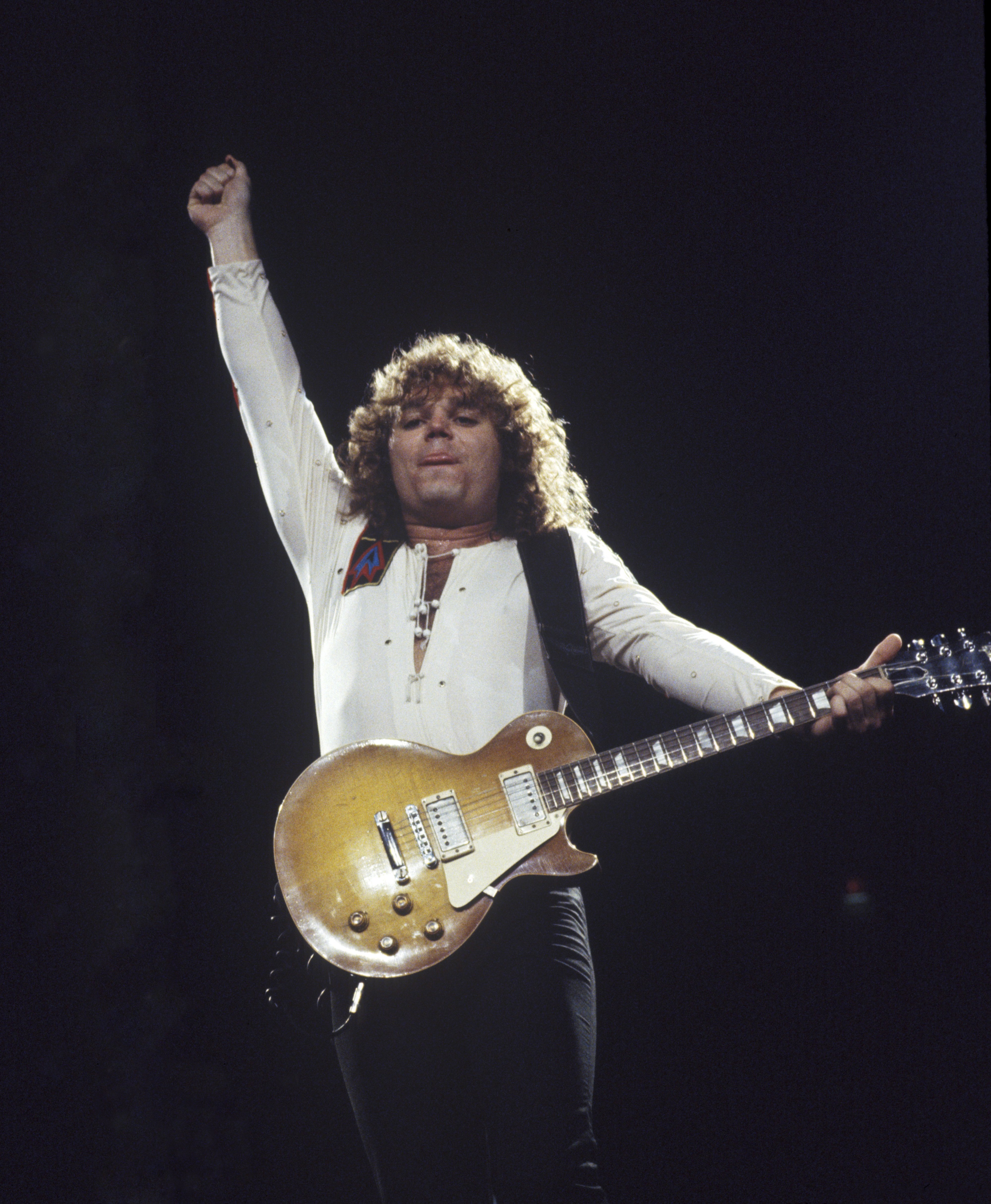
Have you kept in touch with Gary?
We’ve not been in a great deal of contact in the past 20 years. But I actually saw Gary recently. I wanted to give him a chance to really vent his feelings about the present, the past, whatever. He said his piece and I’m glad that he got that out. There were some things he’d been carrying around for a long time. It was a nice meeting. Hopefully that will open a door for us. We live only a couple of miles from each other. And he wanted me to do some song writing with him, so you never know.
So that door is still open for him?
I miss Gary, I really do. I would love for him to be able to experience this resurgence that we’ve felt in the past 10 years. I love playing with Dave, but sometimes when I’m on stage I look to my left and Gary’s not there – it’s a little bit sad to me.
You talked about earlier about the “collateral damage” caused by the band’s success. Did drugs and alcohol play a part in that?
Well, the thing about REO is we kept our personal lives private. I bared a lot of my soul in my song writing, and I didn’t feel that the way we lived our lives was anybody’s business. That being said – yeah, we partied our brains out! We were a rock band in the 70s and 80s! We were flying around in our own airplane and we lived the life. We rocked, you know?
How decadent were you in those days?
We kept our eye on the ball. The most important thing was our performances and making good records. But there did come a time, around 1982, when the aftershow party was becoming the focus of the day, rather than the show itself. When I had that realisation, I said: “Okay, this has gone too far.” But some of the other guys were like: “Tough shit! Let’s go!” So that’s kind of where the rift began.
Did you feel like the party pooper?
Hey, I love having a good time. Part of rock’n’roll is being irresponsible, experimenting and all that good stuff. But on a practical level, people are spending their hard-earned money on watching us play live, and we’d better come through for them.
Was there a defining moment when you realised you’d had enough of drugs?
Oh, yeah. It was some years ago when we were touring in South America. We were in Colombia, so you can imagine. And after the show, someone laid out an item that was about the size of a cue ball – it was the same colour as a cue ball as well – and I respectfully declined. At that moment, I thought: “If I’m turning this down, I think I’m done with this stuff!”
So what’s next for you and REO Speedwagon? Is there another album in the works?
That’s a tough question. I don’t know that there will be a next one. The last one we made was Find Your Way Home in 2008. Not many people heard it, but I would put that in my top five REO albums.
So why not make another?
I’ve got three teenage kids at home. I spend half the year touring, and to come home and spend the next half year in the studio… I don’t think it’s on the cards. But I’m still writing some pretty cool stuff. I imagine we’ll do another record at some time, but it’s pretty nebulous at this point.
Is your family now the most important thing in your life?
I’ve done it twice. I have a grown-up son, and then I got remarried and I have three children with my current wife. As much as it’s fun to play around, being a rock’n’roll guy going from town to town and girl to girl, by nature I’m a one-woman man. I play around until I find the right one and then I hang on for dear life!
But in your line of work, a turbulent love life helps the creative process.
Yeah, in some ways! This is not the best lifestyle for having a calm and easy home life. It’s kind of crazy. But creatively, it fuels the fire.
Is it fair to say that you no longer need to work – that after more than 30 years, Hi Infidelity still keeps the pool heated?
Yeah, that would be a very good way of putting it [laughs].
So what is it that keeps you going after all these years?
The minute I feel like what we’re doing now is not as good as the last tour, I’ll be done with it. But every night when I sing those songs, I feel like I find another part of it. I still feel like I’m trying to get that ultimate performance of Can’t Fight This Feeling. Music is an ever-evolving art form.
When you look back on your career, what is REO Speedwagon’s legacy?
From the beginning, our mantra was in those songs: Ridin’ The Storm Out, Keep Pushin’, Roll With The Changes. We’ve talked that talk and walked that walk. It’s been a wild ride, it’s had its ups and downs, but here we are today, and hopefully we can inspire people to never give up, to stay vibrant and to keep your dreams alive. That, I think, is what I’m most proud of.
Kevin Cronin certainly knew his way around a lyric, what about you? Click on the link below to find out.
